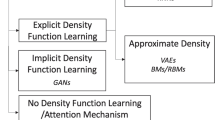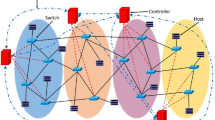Abstract
The implementation of new mobile communication technologies developed in the third generation partnership project (3GPP) will allow to access the Internet not only from a PC but also via mobile phones, palmtops and other devices. New applications will emerge, combining several basic services like voice telephony, e-mail, voice over IP, mobility or web-browsing, and thus wiping out the borders between the fixed telephone network, mobile radio and the Internet. Offering those value-added services will be the key factor for success of network and service providers in an increasingly competitive market. In 3GPP's service framework the use of the Parlay APIs is proposed that allow application development by third parties in order to speed up service creation and deployment. 3GPP has also adopted SIP for session control of multimedia communications in an IP network. This article proposes a mapping of SIP functionality to Parlay services and describes a prototype implementation using the SIP Servlet API. Furthermore, an architecture of a Service Platform is presented that offers a framework for the creation, execution and management of carrier grade multimedia services in heterogeneous networks.
Similar content being viewed by others
References
3GPP, Open Services Architecture, Application Programming Interface, 3G TR 29.998, http://www.3gpp.org
3GPP, The Virtual Home Environment, Technical specification 22-21, http://www.3gpp.org/
3GPP, IP Multimedia Subsystem (IMS), TS 23.228, http://www. 3gpp.org/
S. Bessler, A.V. Nisanyan, K. Peterbauer, R. Pailer and J. Stadler, A service platform for Internet-Telecom services using SIP, in: 6th IFIP Conference on Intelligence in Networks, SMARTNET 2000 (September 2000).
S. Desrochers, R.H. Glitho and K. Sylla, Experimenting with Parlay in a SIP environment: early results, in: IP Telecom Services Workshop 2000 (IPTS 2000), Atlanta (September 2000).
FTW, Forschungszentrum Telekommunikation, Wien (Telecommunications Research Centre, Vienna), http://www.ftw.at
M. Handley and V. Jacobson, SDP: Session Description Protocol, IETF RFC 2327 (April 1998).
M. Handley, H. Schulzrinne, E. Schooler and J. Rosenberg, SIP: Session Initiation Protocol, IETF Proposed Standard, RFC 2543 (March1999).
IETF Multiparty Multimedia Session Control (mmusic) Working Group, http://www.ietf.org/html.charters/mmusiccharter. html
IETF Session Initiation Protocol (SIP) Working Group, http://www.ietf.org/html.charters/sip-charter.html
ITU-T, Q12xx, Intelligent Network, ITU-T Standards.
A. Kristensen et al., The SIP Servlet API, IETF Draft, draftkristensen-sip-servlet-00.txt (September 1999).
J. Lennox, J. Rosenberg and H. Schulzrinne, Common Gateway Interface for SIP, IETF Internet Draft (June 2000).
J. Lennox and H. Schulzrinne, CPL: a language for user control of Internet Telephony Services, IETF Internet Draft (November 2000).
M. Mampaey, TINA for Services and advanced signalling and control in next-generation networks, IEEE Communications Magazine (October 2000).
W. Marshall et al., SIP extensions for caller identity and privacy, IETF Draft, draft-ietf-sip-privacy-01.txt
K. Peterbauer et al., SIP Servlet API Extensions, IETF Draft, draftpeterb-sip-servlet-ext-00.txt
J. Postel, Internet Protocol, IETF RFC 791 (September 1981).
A. Roach, Event notification in SIP, IETF Internet Draft (October 2000), work in progress.
J. Rosenberg et al., SIP Extensions for presence, IETF Internet Draft (March 2001), work in progress.
J. Rosenberg et al., SIP extensions for Instant Messaging, IETF Internet Draft (April 2001), work in progress.
J. Rosenberg, J. Peterson and H. Schulzrinne, Third party call control in SIP, IETF Internet Draft (March 2000).
J. Rosenberg and H. Schulzrinne, Models for multi-party conferencing in SIP, IETF Internet Draft (November 2001), work in progress.
H. Schulzrinne, SIP registration, IETF Internet Draft (April 2001), work in progress.
H. Schulzrinne, S. Casner, R. Frederick and V. Jacobson, RTP: a transport protocol for real-time applications, IETF RFC 1889 (January 1996).
H. Schulzrinne and J. Rosenberg, SIP Caller preferences and Callee capabilities, IETF Internet Draft (November 2000).
J. Siegel, CORBA3 - Fundamentals and Programming, 2nd ed. (Wiley Computer Publishing, New York, 2000).
Sun Microsystems, JAVA Advanced Intelligent Network, the JAIN API's, http://java.sun.com/products/jain/api_ specs.html
The Object Management Group's CORBA pages, http://www. corba.org. Specifications: http://www.omg.org/ technology/documents/spec_catalog.htm
The Parlay Group, Parlay Specification 2.1, http://www.parlay. org
F. Wegscheider, Design and implementation of the Call Control service for an Open Multimedia and Telecom Service platform, Diploma Thesis, Vienna University of Technology.
Author information
Authors and Affiliations
Rights and permissions
About this article
Cite this article
Pailer, R., Stadler, J. & Miladinovic, I. Using PARLAY APIs Over a SIP System in a Distributed Service Platform for Carrier Grade Multimedia Services. Wireless Networks 9, 353–363 (2003). https://doi.org/10.1023/A:1023699327890
Issue Date:
DOI: https://doi.org/10.1023/A:1023699327890




